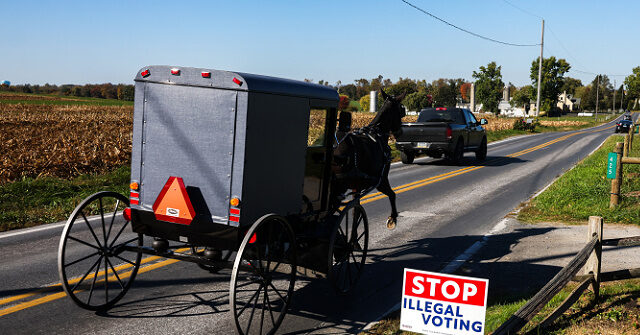The Amish community in Pennsylvania is emerging as a significant demographic in the upcoming presidential election, particularly in relation to former President Donald Trump’s potential for success in the state. Representative Lloyd Smucker, who has firsthand experience growing up in an Amish environment, emphasized how a growing number of Amish individuals are transitioning from traditional farming roles to running successful businesses. This shift is leading to increased political engagement among the Amish, who Smucker describes as increasingly supportive of Trump’s policies. Their affinity for Trump stems from his advocacy for small government and his stances on religious liberty, border security, and the economy, issues that resonate strongly within the Amish community.
Amish culture is characterized by a strong work ethic, family values, and a close-knit sense of community. Smucker highlights the community’s tradition of helping one another, which reinforces their belief in personal responsibility and local governance. This ethos fosters a desire for minimal government intervention in their affairs, which aligns with the Republican Party’s principles. The transition from farming to business has fostered a politically engaged atmosphere among younger Amish generations, who are now more vocal about their beliefs compared to their predecessors. Smucker notes that as the community evolves, this trend of political involvement is expected to grow, reflecting changes in their socio-economic landscape.
According to a report from Elizabethtown College, there are an estimated 90,000 Amish individuals residing in Pennsylvania, with another 84,000 in Ohio, alongside significant populations in states like Indiana, Wisconsin, New York, and Missouri. The Amish community has always maintained a sociocultural identity distinct from the broader American society, but recent trends suggest a potential shift in political dynamics. Smucker shared that in the last election cycle, around 1,500 to 2,000 new Amish voters appeared in his district, and he anticipates even larger numbers in the upcoming election, indicating a growing inclination towards participating in the electoral process.
Historically, political figures have recognized the value of the Amish vote, with former President George W. Bush previously engaging with Amish leaders. Social media has also played a role in advancing the visibility of Amish support for Trump; viral images of Amish horse and buggy caravans displaying Trump flags during the 2020 election demonstrate their enthusiasm for his candidacy. This visibility suggests a growing acceptance of political engagement within the Amish community, which traditionally might have eschewed such public expressions of support for candidates.
Scott Presler, a conservative activist, has been working to further mobilize the Amish voting bloc by emphasizing the alignment of Republican policies with their values. His communications stress the protection of vital elements such as raw milk farming, school choice, and religious freedoms, concerns that resonate deeply with the community’s lifestyle. In his comments at a Trump rally, Presler both acknowledged Amish cultural values and assured them that their way of life would be safeguarded under Republican leadership. This approach reflects a strategic effort to build stronger ties between the Amish and the Republican Party, positioning these voters as an influential demographic.
As we move closer to the election, the evolving political engagement of the Amish community poses implications not just for the dynamics within Pennsylvania, but for broader electoral trends across the nation. Understanding the unique perspectives of this demographic and their views on governance is crucial for candidates aiming to win their support. The changes described by Smucker and echoed in the community’s evolving engagements suggest that the Amish may play a pivotal role in shaping outcomes in key battleground states where their populations reside. As their political involvement increases, it will be important to monitor how their traditional values intersect with modern electoral strategies.

